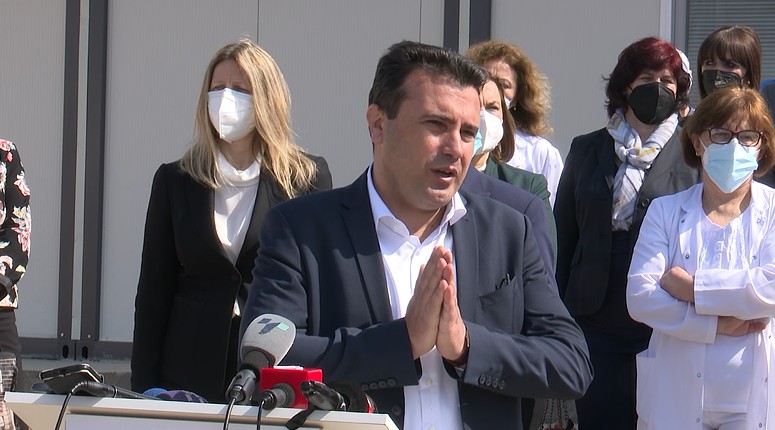In an interview with the Greek “Kathimerini” daily newspaper, Prime Minister Zoran Zaev spoke about Macedonia’s EU perspective and Bulgaria’s veto, as well as the Greek support, the Prespa Agreement, and the relations with the former and current Prime Minister of Greece, MIA reports from Athens.
Prime Minister Zaev explains that despite the positive reports from the European Commission and the Good Neighborly Agreement with Bulgaria, due to the veto from Sofia, Macedonia did not start accession negotiations with the EU.
Determining the history of another nation in the 21st century is not in line with the European spirit, because we need to build a future together. For Macedonia, for the Macedonian people, for all citizens of our country, any intervention in the Macedonian identity is unacceptable. The process has been going on for a long time, we do not want to stop and we will not stop, but we will not endanger our dignity and our identity. I believe that we will find common solutions with Bulgaria and build a quality future for us and future generations, the Prime Minister explained, emphasizing that the past should not be forgotten, but “bridges of cooperation should be built between all Balkan countries, because it is the only road to success.”
On the other hand, he says that Greece remains a “strong mediator and supporter” of our country’s European path, as the Greek Prime Minister assured him.
Zaev recalled the first meetings with Mitsotakis in September and November 2019, saying that both then and in the next meetings a “friendly relationship was created, free from all issues that burdened bilateral relations in the past”, the already defined partnership based on trust and friendship was accepted, “which turned relations between the two countries into an alliance.”
Additional strengthening of the friendship and energy cooperation, according to the Prime Minister, is the gas pipeline that will connect the two countries, ie the agreements for the Alexandroupolis Terminal, as well as for the construction of the interconnector.
Part of the Kathimerini interview refers to the Prespa Agreement, negotiations and relations with former Greek Prime Minister Alexis Tsipras.
Zaev says that three years later he can say that both in our country and in Greece “the strong political will of the leaders and their collaborators to change the image of the Balkans” coincided.
I do not think it would be an exaggeration to say that both Alexis Tsipras and I entered a process in which we risked our political career, without regarding our personal cost. We accepted the challenge of finding a solution that stems from the European approach in finding answers to the most difficult questions, such as the question of my country’s name and its long-standing blockade for three decades, he said.
He adds that there were no impositions in the negotiations, and the most important moment was when they concluded that they share the same values and chose to make decisions and resolve the dispute.




Comments are closed for this post.